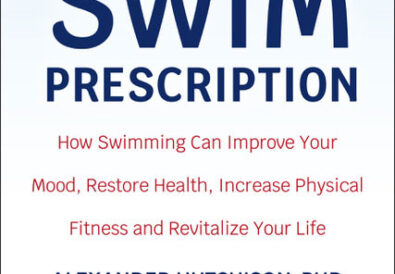The company you keep defines who you are.
We are who we associate with.
Tell me with whom you associate, and I will tell you who you are.
We have heard these sayings for decades. Now, we are sharing them on posters all over social media, which makes me wonder what aspect of our human intellect needs to promulgate the assumption. It seems after so many decades of love-seeking, we should know better than to judge and interject so much human arrogance on one another.
Respectfully, we get to define ourselves if we choose to; no one else can do so accurately. Secondly, the lifestyle, morals, and ideals held by someone else are not viral contagions; we can live and breathe independently of them. Thirdly, association includes our employment, playmates, schoolmates, family, friends, neighbors, social media connections, and followers. Realistically, am I being put into a category with every entity and human I work with? Every golfer, hiker, yogi, and dancer I exercise with? What about every person born into my family, thousands of Facebook friends, and the audiences I have addressed, which include the likes of wealthy donors at black-tie galas to the occupants of jails, prisons, and homeless shelters? Because, for real, this (and more) is my association package.
And what are we to do after reading these idioms? Should we blaze through our contacts, determining how we are being typified and judged? Create a personality resume on Linkedin to squash any confusion? Should we start making lists of character traits we would like to be defined by and then match them with people we know, or maybe we are supposed to break up with all of our “bad” associations so we can find better ones…?
Uh oh, reality check: If we assume the association rule is correct, people who are better than us may not want to be defined by us. Hmmm, so now what?
It is sad to know that no matter how well we are trying to live our lives, we will be judged by sight and assumption. And even though we do have some control over our time and alliances, we cannot force others to see beyond the shallows. So, the question we may want to ask ourselves is should we care?
Of course, individually, we can use the company we keep as a partial indicator of our current state of mind and energy. Doing so, though, does not wholly define who we are; it defines a moment in our timeline. We already know it benefits us to adjust and or move on from relationships that are seemingly harmful, unhealthy, or unproductive, but when it comes down to a final act of severance, should we do so because of fear of an opinion held by someone else or our own?
We have friends who are more or less educated, gifted, and financially stable than we are. Acquaintances with troubled or blessed childhoods and those with a different political or religious leaning, martial status, or moral compass. Most of us have come to realize that people who are dissimilar in mind, body, and spirit can teach us something about ourselves; sometimes, we teach them. Often, they keep us focused on what we want, grateful for what we have, and more in tune with what is going on outside of our own little world.
As I look back, I see times in my life when I was down and depressed, broke and disheartened, without faith, and incredibly humbled by life circumstances. Yet I found myself in the company of people who were on the opposite end of that spectrum. Some successful, talented, and incredibly smart individuals chose to spend time with me. A few acted as mentors; some offered emotional support (so much more than I was able to offer in return). They livened up my spirit, brought out my latent talents, and kept me focused on what I could be, not on what my self-esteem was leading me to believe.
Their eyes were the window to my soul, and I thank God they did not worry about how our association looked to others. I thank them for knowing better than the idiom-makers!
It would help us to remember that no matter whom we are with or how others will choose to judge and characterize us, we are still totally beyond what any simple human perspective can glean. And if we are inclined to judge others, let us realize that rubber-necking on other people’s journeys is unproductive. We would do better looking ahead and moving forward on our own.
When it comes to gaining clarity about ourselves or anyone else, we can choose the truth over fiction. Asking for the higher sense of ourselves to take over and fill us in on the what, when, where, and why in all our relationships will make decisions come easier, and our most productive paths seem obvious.
And when we find ourselves connected to someone who is in the midst of their defining moments, we will not be afraid of what our association with them will do to our reputation. We will, instead, offer them our love and light, right then and there, without fear of reprisal or judgment from anyone.
 Donna Martini is an activist, speaker, cartoonist, and author of two books, The Ten Commandments of Divorce and My Mini Book of Mighty Mantras. As an intuitive coach, she helps businesses, non-profits, government agencies, families, and individuals learn how to tap into their full potential through an energy technique she calls Positive Manipulation®. Her cartoon character, MantraMouse®, uses simple phrases to help people of all ages come to understand their human complexities, innate power, and potential. And with her recent music video release, #OneNationsHeart, Donna hopes to promote more love and unity of spirit in America. She can be reached at donna@donnamartini.com
Donna Martini is an activist, speaker, cartoonist, and author of two books, The Ten Commandments of Divorce and My Mini Book of Mighty Mantras. As an intuitive coach, she helps businesses, non-profits, government agencies, families, and individuals learn how to tap into their full potential through an energy technique she calls Positive Manipulation®. Her cartoon character, MantraMouse®, uses simple phrases to help people of all ages come to understand their human complexities, innate power, and potential. And with her recent music video release, #OneNationsHeart, Donna hopes to promote more love and unity of spirit in America. She can be reached at donna@donnamartini.com
Follow her on https://www.facebook.com/donna.martini.7
Learn more at www.mantramouse.com

















